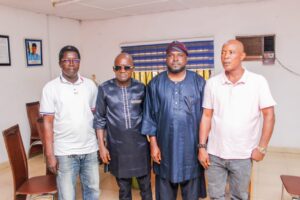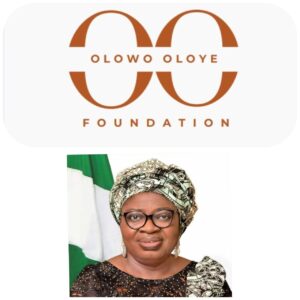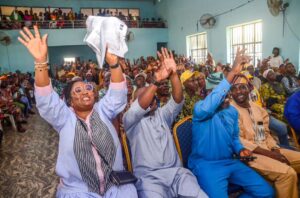Results of Tinubu’s Reforms Becoming Evident, Says Information Minister
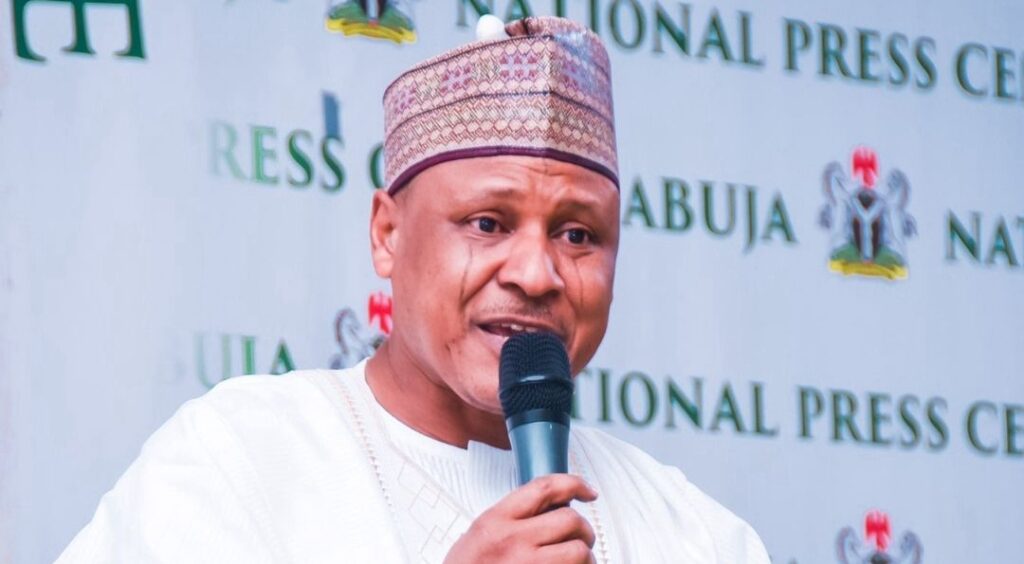
Results of Tinubu’s Reforms Becoming Evident, Says Information Minister
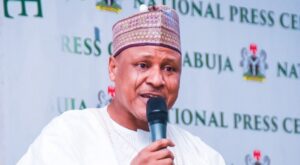
Minister of Information and National Orientation, Mohammed Idris, on Tuesday acknowledged that President Bola Tinubu’s reforms initially brought hardship but noted that they are now delivering tangible results across economic and governance sectors.
Idris insisted that the Renewed Hope Agenda, Tinubu’s signature programme, was laying the foundation for Nigeria’s economic renaissance through bold reforms, strategic investments, and inclusive policy innovations.
This was as the Akwa Ibom State Governor Umo Eno, hassaid Nigeria’s economic problems predated the administration of Tinubu, stressing that the president deserved national support to steer the country through the difficult times.
Speaking at the 2025 Nigeria Public Relations Week in Uyo, the Akwa Ibom State capital, Idris stated that the Tinubu administration policy direction had repositioned Nigeria for significant economic reforms, which were yielding visible results across critical sectors.
“Permit me to posit, with every iota of conviction, that the Renewed Hope Agenda is steadfastly paving the way for Nigeria’s economic renaissance,” Idris declared.
He urged public relations professionals to match the moment by strategically deploying persuasive, values-driven and inclusive communication mechanisms in galvanising the population, home and abroad, to participate in the reawakening of an economic giant.
Idris explained that the economic reset began on the first day of the inauguration of the Tinubu administration, with the removal of the fuel subsidy and the unification of the exchange rates, describing the move as the bedrock of the nation’s economic transition or renaissance.
He stated that although the reforms initially triggered hardship, they had started to yield measurable outcomes through improved exchange rate stability, increased state revenues, revived local oil refining, and a strengthened fiscal position.
Ahead of the second anniversary of the administration, the minister said Nigerians were now witnessing a period of unprecedented investment in infrastructure, agriculture, security, and human capital.
He highlighted the landmark developments to include: N2.5 trillion being invested in road infrastructure in 2025, the highest in the country’s history; creation of new ministries for regional development and livestock, to accelerate regional economic growth and unlock billions in agricultural opportunities; and the launch of Nigerian Education Loan Fund (NELFund), which had already benefitted over 300,000 Nigerian students in tuition and upkeep support.
Others, Idris said, were earmarking of N200 billion for economic assistance to nano businesses, outfits typically owned and operated by one or two persons, and are significantly smaller than micro businesses, and large manufacturers; direct investment of over $450 million in Compressed Natural Gas (CNG) infrastructure under the Presidential CNG Initiative; establishment of CreditCorp, allowing Nigerians to access credit for housing, healthcare, and other essential needs, among other milestones.
Idris stated, “Today, Nigeria is a vast construction site, with over N2.5 trillion worth of road infrastructure projects approved this year alone, the highest ever in Nigeria’s history.
“The government is linking cities through signature projects, such as the Lagos-Calabar and Badagry to Sokoto superhighways, and in all parts of the country.
“There are several other ongoing works as we speak. From the Port Harcourt and Warri refineries that have come back to life, to the approval of N80 billion for the reconstruction of the failed Alau Dam in Borno, to the progress on the construction of the Kano-Kaduna Standard Gauge Railway Line, no part of Nigeria has been left behind in this massive allocation of infrastructure investments under President
Tinubu, who has now been described as ‘The Road Master’.”
He also highlighted other encouraging macroeconomic indicators, underlining the Consumer Price Index (CPI) for April 2025, recently released by the National Bureau of Statistics, which indicated that headline inflation rate for April stood at 23.71 per cent, representing a decrease of 0.52 per cent from the 24.23 per cent recorded in March 2025.
The minister said the indicators could only have happened because the president’s deliberate policy interventions gradually being made manifest, were well-nurtured and paying off.
He urged public relations professionals to take their place as central agents of national renewal by helping in shaping and projecting Nigeria’s rising economic profile to the world.
“Nigeria is on the rise. It has attracted over $50 billion in new foreign direct investment commitments, diaspora remittances are at $21.9 billion, and Nollywood contributed over N730 billion to GDP. These are not just statistics. They are stories waiting to be told effectively, professionally, and patriotically,” he said.
Idris also reiterated his ministry’s commitment to strategic and coordinated national messaging through the newly-conceived National Strategic Communication Framework (NSCF).
Eno: Nigeria’s Economic Problems Not Tinubu’s Creation, Seeks Support for Him
Akwa Ibom State Governor Umo Eno said Nigeria’s economic problems preceded the Tinubu administration. Eno said the president deserved national support to steer the country through difficult times.
Speaking to newsmen on Tuesday after meeting with Vice President Kashim Shettima at State House, Abuja, Eno described Tinubu’s first two years in office as “wonderful” and marked by determined efforts to address inherited challenges.
According to him, “President Tinubu didn’t create the problems we are in right now. For me, I believe he is doing his best, and he should be supported to finish strong.”
With his own administration nearing the two-year mark, the governor highlighted achievements across key sectors in Akwa Ibom State, including education, healthcare, road infrastructure, and rural development.
He said, “When you come to Akwa Ibom, you’ll find we are working across the board—from schools to hospitals, roads, and markets. We are delivering tangible results.”
Eno stated that while the first phase of his administration focused on grassroots development, the next two years would usher in a wave of major infrastructure projects to position the state as an economic and tourist hub.
“We’re transitioning into major infrastructure development. Our goal is to transform Akwa Ibom into a prime tourist destination—and we’re making steady progress,” he emphasized.



